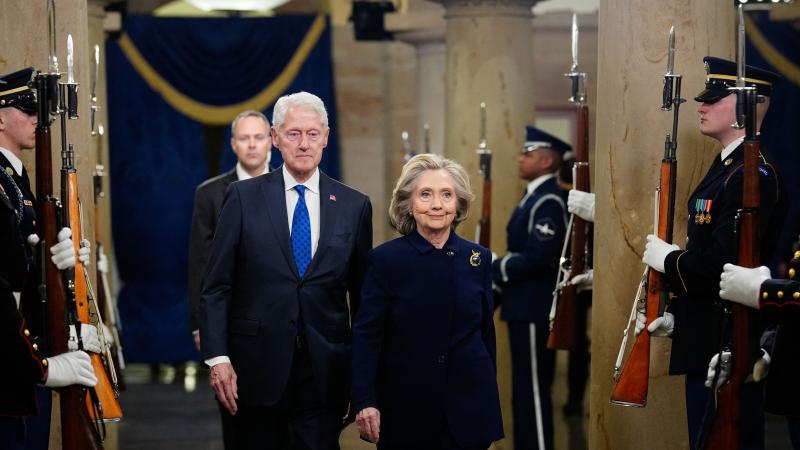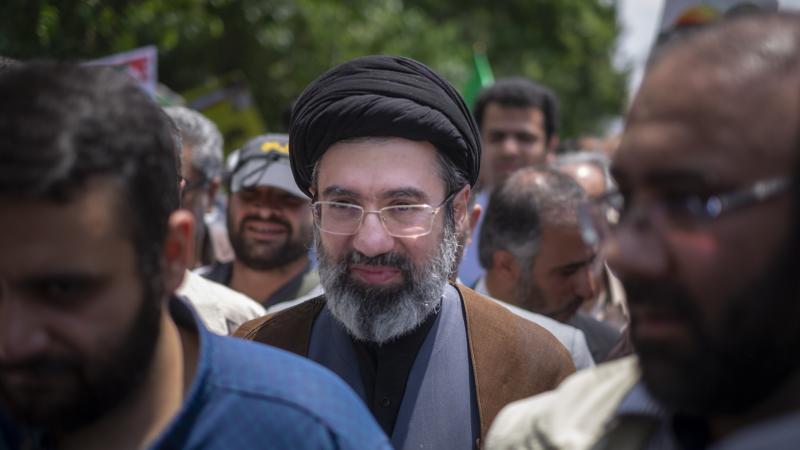Chinese labs and Russian bounties: Biden admin gives partial vindication to Trump theories
President was slammed for political assertions in 2020, but Biden administration is advancing similar assessments.
Former President Donald Trump in recent weeks has received at least partial vindication for several controversial political claims he made last year, claims which were ridiculed in the press but which the Biden administration is echoing in new assessments recently advanced by administration officials.
The Biden administration revealed this week that its intelligence had "low to moderate confidence" that the Russian government had placed bounties on the lives of U.S. soldiers fighting in Afghanistan, an allegation which which caused political shockwaves when it was leaked last summer.
Then-candidate Joe Biden used it as a cudgel against Trump during the presidential race, claiming that Trump's alleged failure to act on the intelligence showed that his presidency had "been a gift to Putin."
"It's betrayal of the most sacred duty we bear as a nation to protect and equip our troops when we send them into harm's way," Biden said at the time. "It's a betrayal of every single American family with a loved one serving in Afghanistan or anywhere overseas."
Trump claimed to have never been briefed on the matter, arguing that the intelligence behind it was not credible and that the allegations themselves were "fake news." The Washington Post subsequently awarded Trump a "Four Pinocchio" fact-check rating, claiming that while the assessment of the allegation's reliability was "mixed," that "[didn't] make it 'fake news.'"
This week's walkback at least partially vindicates Trump's claims from last year, though Biden himself has not yet apologized to Trump for linking him to the unconfirmed allegation, while the Washington Post in an update to its fact-check said it would not make any changes to its assessment from last year.
Biden administration continues to stress possible lab origin of COVID-19
Also emerging as at least a qualified vindication for Trump are ongoing claims from the Biden administration that the SARS-Cov-2 virus may have leaked from a Chinese lab.
Then-President Trump asserted several times early on in the pandemic last year that the virus may have escaped from a lab in Wuhan, China prior to spreading worldwide. News organizations largely covered those claims negatively, reporting that Trump "did not provide any evidence" to back up the theory, pointing out that he had "contradicted [the] US intel community" in making the claim, and linking Trump's allegations to "internet rumors and right-wing radio hosts."
Yet the lab-leak theory has persisted over the past year, bolstered in part by global scientific skepticism over a World Health Organization report that concluded the lab-leak hypothesis was highly unlikely.
The theory recently received the imprimatur of the Biden administration's Director of National Intelligence Avril Haines, who admitted during a recent Senate Intelligence Committee hearing that the U.S. intelligence community "does not know exactly where, when or how the COVID-19 virus was transmitted initially."
Haines acknowledged that the two scenarios deemed most likely by intelligence officials are that the virus "emerged naturally from human contact with infected animals or it was a laboratory accident."
The U.S. Department of State has also signaled that it considers the lab-leak scenario a still-viable theory. In February, responding to the conclusions of the World Health Organization investigation, the department said that it would "work with our partners and also draw on information collected and analyzed by our own intelligence community to evaluate the report" on its own terms.
Beyond the Biden administration, even WHO leadership has indicated that the lab-leak scenario is still under consideration. WHO Director Tedros Adhanom Ghebreyesus on Mar. 30 bluntly stated that the team's investigation "was [not] extensive enough" and that "further data and studies will be needed to reach more robust conclusions."
"Although the team has concluded that a laboratory leak is the least likely hypothesis, this requires further investigation, potentially with additional missions involving specialist experts, which I am ready to deploy," Ghebreyesus said.
Trump himself has remained silent on the ongoing investigation, as indeed he has on most subjects since first being banned from major social media platforms and then leaving office in January of this year.
Still, his former CDC director, Robert Redfield, has continued to advocate the lab-leak theory, stating during a CNN interview in March that he is "of the point of view that I still think the most likely etiology of this pathogen in Wuhan was from a laboratory."
Notably, in spite of the Biden administration and the World Health Organization keeping open minds regarding the lab-leak hypothesis, numerous media outlets implicitly disputed Redfield's remarks.
Politico, for instance, claimed Redfield had "contradict[ed] the assessment of the World Health Organization and most public health experts," while CNN asserted that Redfield's opinion was "a controversial theory without evidence."















